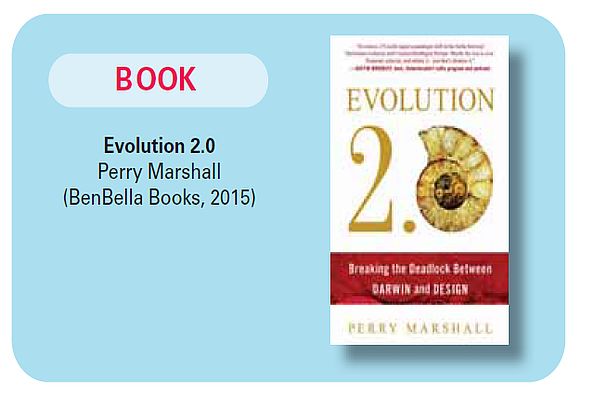This article first appeared in the Christian Research Journal, volume 39, number 5 (2016). For further information or to subscribe to the Christian Research Journal please click here.
The debate between supporters of Darwinian evolution and those who see the hand of a Creator in action has been going on ever since Darwin published On the Origin of Species in 1859. At first, the disagreements dealt strictly with conflicts between the Bible and science. The challenges were religious (arguing for a literal six-day Creation), while the basic tenets of evolution proposed that life arose and developed over millions of years through what Marshall calls “a purposeless process of random mutations and natural selection.”
Many efforts during the twentieth century focused on reconciling faith issues with evolution. Theistic evolution proposed that God did start things off, but worked through evolutionary principles to form the world as we know it today. A great deal of effort was spent in bolstering support for the unplanned, undirected, random processes of evolution as a foundation for the development of life. In more recent years, however, a growing number of scientists are coming to challenge these ideas, seeing purpose and design in the world around them and recognizing the inability of the classical Darwinian paradigm to account for them.
Perry Marshall applies his training as an electrical engineer and his years of experience consulting for a number of industries, including computer hardware and software, financial, and healthcare fields. He poses a challenging question: if random evolutionary forces can produce the complexity we see in life from the simplest cell to the most complex organism, why don’t engineers use Darwinian evolution to design all the complicated “stuff” we have today? The short answer is that it doesn’t work that way. Classic Darwinian evolution (Evolution 1.0) is not capable of generating complexity and improved organisms. Marshall proposes Evolution 2.0 as a replacement that can explain change and complexity today.
Evolution 2.0 is based on several known biological processes that can be studied: transposition (rearrangement of the DNA within a cell), horizontal gene transfer, epigenetics (passage of acquired characteristics to offspring), symbiogenesis, and genome duplication. Marshall sees the organism as operating as a complex system of interlocking processes, with changes taking place rapidly, not over millennia. Drawing from information theory, he argues that codes such as the genetic code require a designer in order to exist. Useful summaries on pages 147–48 highlight the main points of Marshall’s ideas.
Although most evolutionary biologists will argue that the origin of life is separate from the issue of evolution, Marshall sees origin questions as being an essential part of this debate. While he does not delve into prebiotic evolution to any extent, he does raise the question of the origin of these chemicals. Focusing primarily on DNA and the information contained in those molecules, Marshall takes on the question from an information science perspective. He points out that many researchers have no good idea as to how the code arose, while others make attempts to explain it in terms of physical processes. Marshall feels the creation of the genetic code is just that — a miraculous creation. In fact, he has offered several million dollars as a prize for the first person who can show an example of a code that is not designed. Details can be found at the end of the book.
Marshall spends a lot of time dealing with religious issues, offering challenges to both the atheist and the creationist. A close reading suggests that Marshall is at least very familiar with some aspects of Scripture, and it sounds like he acknowledges a Creator, but it remains very unclear exactly what the specifics of his personal theology are.
As an “outsider” (with training in electrical engineering), Marshall learned his biology by extensive reading in the field. He is very familiar with the basic concepts of cell biology and evolutionary issues. His background in information theory ties together basic biology and coding/signaling issues. His nonscience topics take up a significant piece of the book but make for interesting reading in the science/religion arena. Marshall does spend a significant amount of time challenging the tenets of six-day creationism (which could annoy some readers), but he does raise significant questions, no matter what your position is on this debate.
—Donald F. Calbreath
Donald F. Calbreath, PhD, retired in 2006 after twenty-two years on the chemistry faculty at Whitworth University in Spokane, Washington. His research interests involve the relationships between brain neurochemistry and human behavior.









